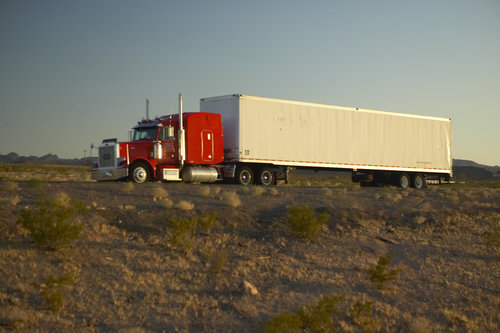
(PHOTO: SHUTTERSTOCK)
It is not uncommon for trucking business owners to receive unsolicited offers to purchase their businesses. These instances have become more prevalent in the current market, thanks to a combination of factors, including the driver shortage and buyers’ ability to pay.
“People are coming now because they need drivers. That is bringing a lot more buyers to the table than have been there in the past,” Spencer Tenney, managing partner at the Tenney Group, said. “A lot of folks right now are a little fat and happy. They’re seeing normalizing interest rates, and the writing is on the wall. They say, ‘Hey, I’ve got a need. I’ve got some money and a closing window. So, if I’m going to make a move, I should probably make it now.’”
Tenney walked attendees through the right way to respond to these unsolicited offers during the Truckload Carriers Association Profitability Program Seminar in Indianapolis, Indiana earlier this week.
Tenney emphasized that his mission was not to convince companies to sell but rather to assist business owners in making decisions that will help them create financial security, protect their employees’ interests and preserve their legacy. He said that could lead to different outcomes for different companies.
Business owners often wonder why they should bother to respond to unsolicited offers at all if they are not interested in selling. Still, handling these conversations well can set companies up for success in the future, while responding poorly can lead to less desirable outcomes later.
“Rarely is money by itself a significant enough factor to spur dramatic change,” Tenney said. “The reason why it is important is because you may not care about selling, but you probably care about your family, you probably care about creating financial stability. . .You care about your employees. . . You also think about legacy and community. These are things you process. The offer is not about the money, it is potentially an instrument to help you accomplish those other things. This is why we engage.”
According to Tenney’s presentation, responding to an offer can advance and protect the company’s legacy and the community, provide more opportunities to employees, ensure money is not left on the table, leave the door open for future conversations and help business owners learn something new.

On the other hand, responding to an offer poorly can waste valuable time, compromise confidentiality for no reason, cause a company to lose the best deal they may ever receive, burn a bridge with an ideal buyer or cause business owners to miss their window to exit.
Tenney said that blowing off a buyer now without engaging in the conversation makes it far less likely that the same buyer will come back to the table later, when the business owner may be ready to sell.
When engaging with potential buyers, Tenney encouraged business owners to establish confidentiality, establish expectations in terms of what information will be shared and establish a timeline for action. He also reminded business owners that they have the leverage in the situation.
“About 1-2% of trucking companies will be pursued by qualified buyers,” Tenney’s presentation noted. “If you are dealing with only one buyer, you are forfeiting your greatest asset: leverage.”
Tenney made it clear that going with the most convenient offer is not a good plan of action, as it often leads to a discounted valuation. Convenience does not lend itself to protecting legacy, promoting employee interests or creating financial security, according to Tenney.
Whether trucking business owners are interested in selling right now or not, responding well to unsolicited offers can set them up for success in the future. Lack of foresight, on the other hand, can become a real headache down the road.









